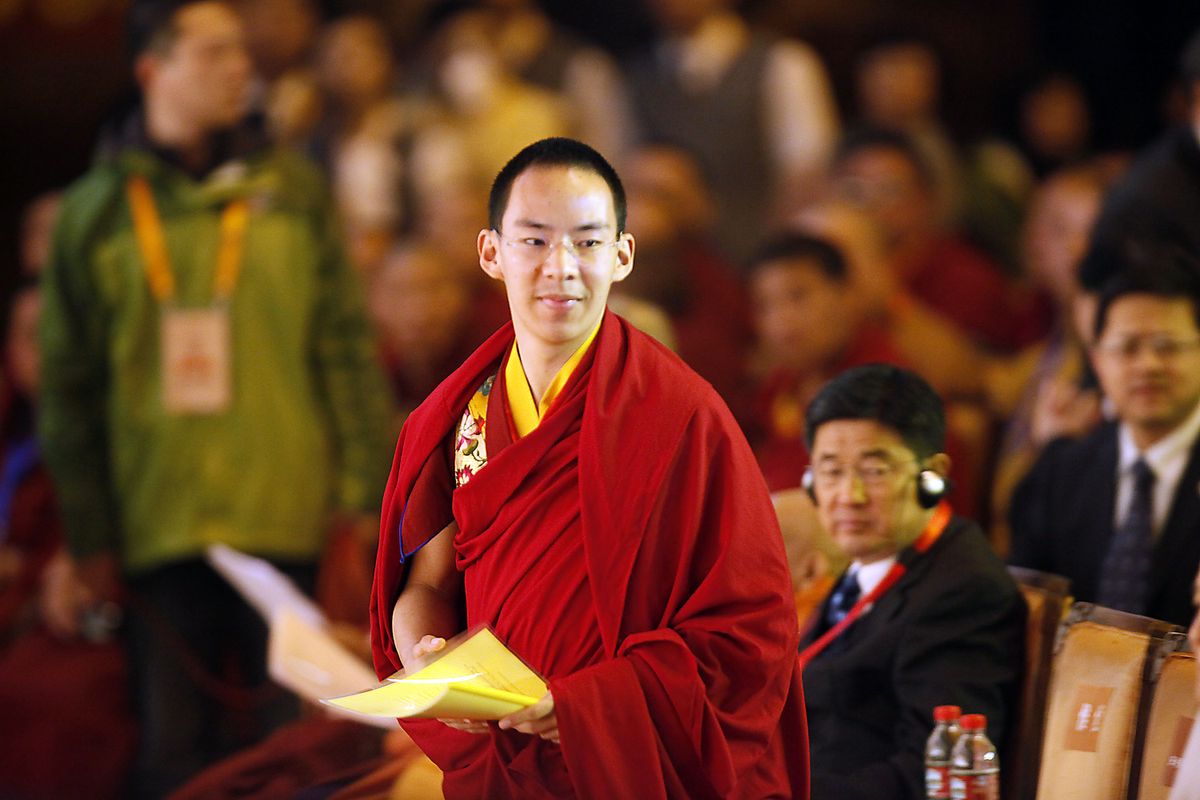China marks 50 years of control over Tibet
1959 crackdown on uprising hailed as ‘Serfs Liberation Day’

WUXI, China – China celebrated 50 years of direct control over Tibet with a lavish international Buddhist conference Saturday featuring a rare appearance by Beijing’s hand-picked Buddhist leader – underscoring efforts to promote its image as a protector of the faith.
March 28 marks the date when China ended the 1959 Tibetan uprising, sending Tibetan spiritual leader the Dalai Lama over the Himalayas into exile in India and placing Tibet under its direct rule for the first time.
In China’s official version of events, Tibet in mid-century was a remote medieval backwater where most people lived in servitude to the Buddhist theocracy and nobility until the Communist government stepped in. To support that contention, China commemorated a new political holiday Saturday – “Serfs Liberation Day.”
“Just as Europe can’t return to the medieval era and the United States can’t go back to the times before the Civil War, Tibet can never restore the old serf society era,” Zhang Qingli, the Communist Party boss of the region, told a crowd of more than 13,000 in Lhasa, the Tibetan regional capital where the government held a separate ceremony for the holiday.
The Tibetan government-in-exile said on its Web site that the new holiday is aggravating problems in the region and would be a day of mourning for Tibetans around the world.
“Tibetans consider this observance offensive and provocative,” it said.
Hundreds of Tibetans in the northern Indian city of Dharmsala – the headquarters of the Dalai Lama’s government-in-exile – and in the Nepalese capital of Katmandu held street protests against Beijing’s rule.
China has stepped up its attacks on the Dalai Lama after the exiled Tibetan spiritual leader compared life under Chinese rule to “hell on earth” earlier this month.
The World Buddhist Forum in the eastern lakeside city of Wuxi featured an appearance by the Panchen Lama, the second-highest figure in Tibetan Buddhism, whose status is rejected by followers of the Dalai Lama.
The Panchen Lama’s rare appearance at the forum was a strong indication of Beijing’s determination to boost his profile as a credible religious figure.
“This event fully demonstrates that today’s China enjoys social harmony, stability and religious freedom, and also shows that China is a nation that safeguards and promotes world peace,” the Panchen Lama said in an address delivered in English to the opening ceremony.
Despite Beijing’s backing, Gyaltsen Norbu is not widely accepted by Tibetans as the Panchen Lama. Another boy, Gendun Choekyi Nyima, was named as the reincarnation of the Panchen Lama by the Dalai Lama in 1995. The boy and his family disappeared soon after and have not been heard from since.